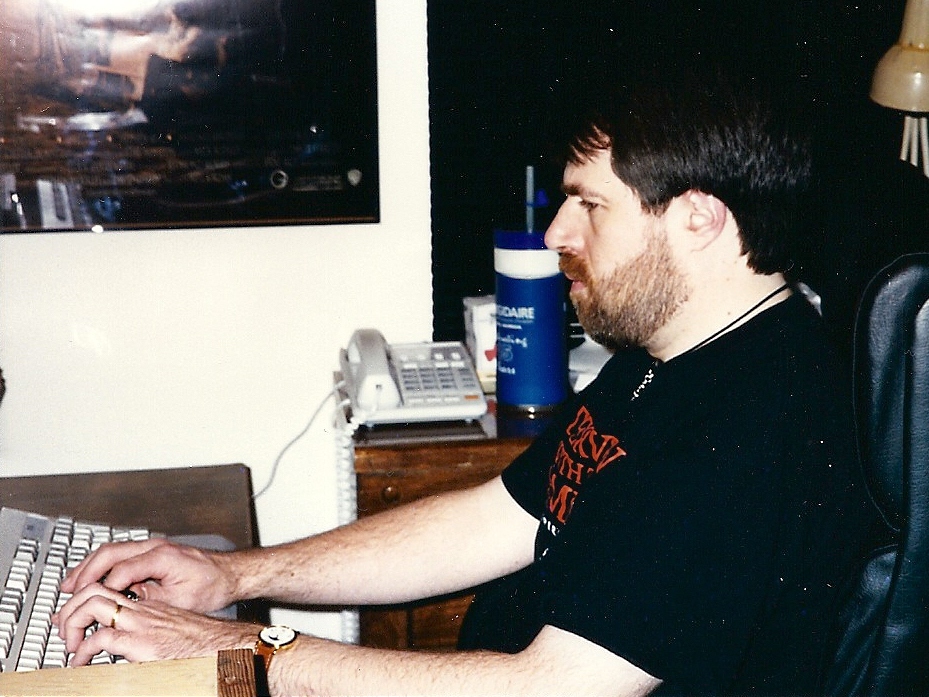
This is the third in an occasional series on spiritual practice techniques.
I have practiced writing as a spiritual discipline for most of my life, far longer than I’ve been a Pagan or a Unitarian Universalist. I think this is the engineer in me coming through: I had issues to deal with or religious questions to consider and my first impulse was to define the problem as clearly and objectively as I could. It helped – some times more than others – but it always helped.
Writing as a spiritual practice serves three main purposes.
Writing promotes objectivity. Our daily lives are filled with emotions and emotional reactions. This is a good thing – we are humans, not Vulcans. But many factors can influence how we feel about a given issue: what we were taught as children, old beliefs we haven’t quite overcome, stress at work or at home, even things as mundane as what we had for dinner last night. Writing forces us to distill all those feelings into a few words. Once those words are on paper, they are no longer completely within us – we can evaluate them with more detachment. It becomes easier to realize that what we think is the problem may only be a symptom of a deeper problem. Once we recognize the root cause or the core issue, we can address it directly instead of constantly dealing with symptoms.
Writing provides records. In elementary school science class I was taught that scientists keep journals of all their experiments – the experimental hypothesis, elements, methods, test conditions, and results. Your life is an on-going experiment of one. Regular writing generates records of what you did, how it worked, and how you felt about it. There are many times when I face a problem I know I’ve faced before. I can go back to my writings and see what I did in similar situations. Sometimes that tells me what I can do this time, other times it tells me what I shouldn’t do. Memories are very fallible – don’t count on remembering everything.
There are times when I really wish I had found this spiritual path much earlier in life. But then I read some of the stuff I wrote in my 20s and early 30s and I realize I wasn’t ready for it – I had to go down a lot of dead end streets before I was able to understand and accept that what I was yearning for wasn’t what society was telling me I “should” want. Sometimes you don’t appreciate how far you’ve come till you stop and look back at where you used to be.
Writing promotes discipline. Unlike eating and sleeping and sex, there is no evolutionary urge for spiritual practice. There are so many demands on our time – we have to make time for doing the things that align us with our highest goals and beliefs. We can neglect to meditate day after day and think it’s been a week when it’s really been a month. But with writing, it’s all there – quite literally – in black and white. The discipline we develop in this practice will carry over and help us in other techniques and practices.
Keeping this blog has been a tremendous discipline for me. I know that if I don’t get something up at least once or twice a week, many of you folks will quit reading. So I’m more regular with my writing than I ever was before.
How should we write? My essays end up on the blog, while I keep my more personal notes in a plain text file – that makes it easy to keep copies at home and at work, and to search when I can remember “what” but not “when.” In the years BC (Before Computers) I wrote things out on notebook paper and stuffed them in a manila folder. In the Spiritual Practice workshop at Pagan Pride Day a participant said that physically writing on paper was a magical act for him.
Whether you write longhand in a leather-bound diary or type into a word processor or anything in between, the important thing is that you write regularly – at least a couple times a week.
Twitter and Facebook don’t count – they’re too brief and mostly too shallow.
If you aren’t already keeping a diary or journal, start. If you struggling with decisions or directions or beliefs, try writing through them. And look back every so often to see just how far you’ve come.












